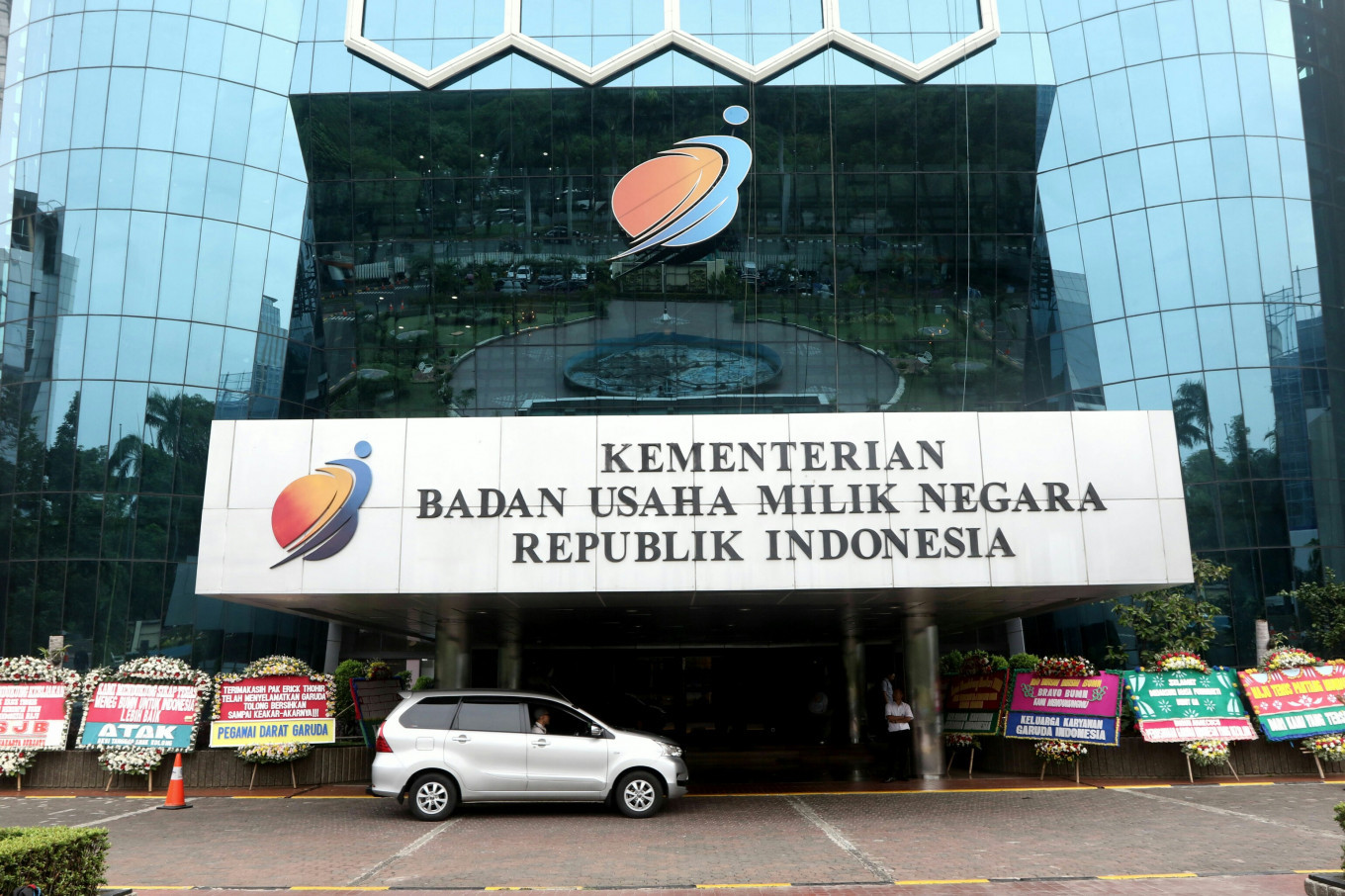
Most SOEs have completed proposed 'new normal' protocols: Minister
by Norman HarsonoMost state-owned enterprises (SOEs) have compiled their post-restriction or "new normal" business recovery protocols in a preemptive strike for when regions lift partial lockdowns, officially called large-scale social restrictions (PSBB).
SOEs Minister Erick Thohir said on Tuesday that 86 percent of the country’s over 100 SOEs had completed compiling their protocols on Monday, which was the last day of the annual Idul Fitri holiday and the deadline as stipulated in a previous circular letter.
“For those that are not ready, we will guide them to avoid making mistakes in the field,” the minister said during a live-broadcast Idul Fitri meet-and-greet.
Customers and SOEs will require between four and five months to adjust and fine-tune “new normal” recovery protocols, he estimated. The exact protocols differ between industries but generally involve continued physical distancing and digitalization practices.
The ministry previously ordered SOEs to prepare such protocols before regional administrations lifted partial-lockdowns, which are slated for different dates. Jakarta currently plans to end its partial lockdown on June 4, Surabaya in East Java on June 8 and Bandung city in West Java on May 29.
“SOEs are all over Indonesia. We cannot wait for every region to relax their PSBB before making protocols,” said Erick.
On May 20, Health Minister Terawan Agus Putranto signed a set of policies on the prevention and control of COVID-19 in offices and factories.
The policies set out requirements for businesses to be allowed to reopen, including ensuring sufficient handwashing facilities, checking employees’ temperatures, requiring employees to wear masks, keeping a 1-meter distance between employees at work, minimizing physical interaction with customers and avoiding the formation of crowds.
"It’s impossible to impose restrictions on workplaces forever. We should keep the wheels of our economy running,” Terawan said in a statement on the Health Ministry’s official website on Saturday. “That’s why workplaces must prepare to adapt to changes amid the COVID-19 situation, also known as the new normal.”
If you want to help in the fight against COVID-19, we have compiled an up-to-date list of community initiatives designed to aid medical workers and low-income people in this article. Link: [UPDATED] Anti-COVID-19 initiatives: Helping Indonesia fight the outbreak